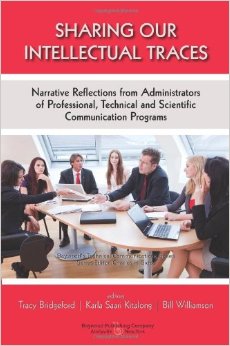Barbara Fister reviews Naming What We Know: Threshold Concepts of Writing Studies, edited by Linda Adler-Kassner and Elizabeth Wardle, in light of new threshold concepts that reframe the way we think about what we know. Fister also writes to warn against the undue haste she believes some librarians have with this new Framework. Instead of checklists and learning skills, she would have librarians and faculty think about sharing these Framework ideas in full, fleshed out form. Foster recommends this collection of essays to librarians and those across the disciplines.
Most interesting for WI course faculty is the focus of the book Fister reviews.

